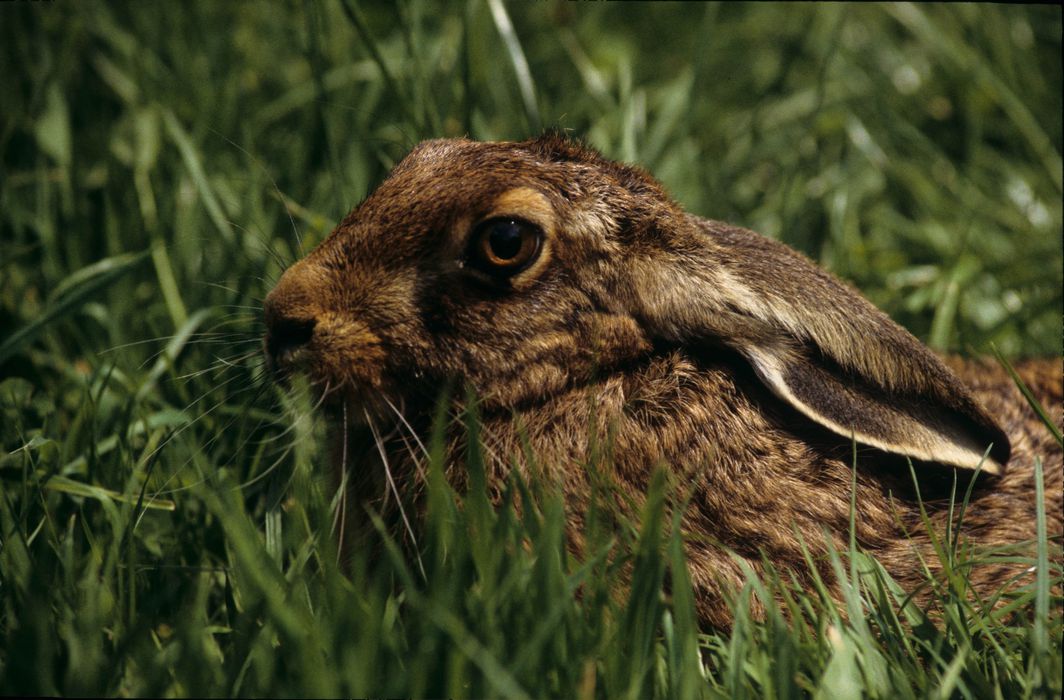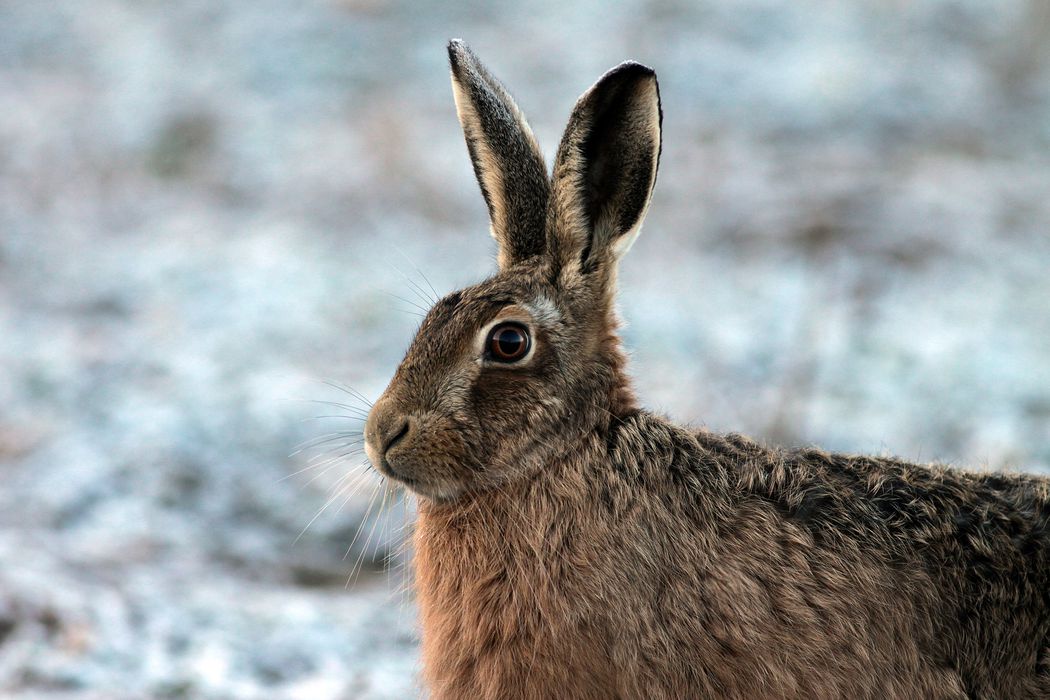Click to jump to a certain part of the page
What is hare hunting?
Hare hunting involves packs of hunt hounds chasing and killing hares. There are 68 hare hunts still operating across England and Wales, despite hunting with dogs being banned when the Hunting Act 2004 came into force.
The hunts are primarily beagle packs and basset hound hunts, which primarily hunt on foot. There are also a handful of mounted harrier hunts that target hares.
What happens during a hare hunt?
The hounds often chase the hare around in circles, with the chase lasting up to 45 minutes before the exhausted animal is caught and savagely torn apart.
If there is anything left, the huntsman sometimes cuts off the mask (head) and scut (tail) as trophies.
Hare hunting is described by the League as one of the cruellest blood sports we have had the misfortune to witness.
The hare has been failed by weak legislation and is at risk of being forgotten by lawmakers.

Is hare hunting legal?
No. Hare hunting with dogs was banned in England and Wales by the Hunting Act 2004. Hare hunting is therefore illegal.
The Act includes some examples of 'exempt' hunting some of which are exploited by the hunts to cover up their illegal hunting.
When and where is the hare hunting season?
The hare hunting season takes place from late August until March and happens widely in the English and Welsh countryside.
Early in the season it is primarily young hares called leverets, which would have been born that year, that are killed.

What is the difference between hare hunting and hare coursing?
Hare hunting is different to hare coursing, although the two activities are both widespread and illegal under the Hunting Act 2004.
Hare hunters will wear uniforms just like fox and stag hunts do, and they will have been invited onto the land, or allowed onto it, by farmers or other landowners. There they will release their beagles or basset hounds into the field to chase the hares.
Hare coursing, however, involves trespass and criminal damage so tends to attract the wrath of landowners and the police, making it significantly more high profile. Hare coursing also sees sighthounds such as greyhounds and whippets used by the hunters, and often bets are placed on which dog will kill the hare.

Our history with hare coursing
Hare coursing was the predecessor to greyhound racing and the cruel sport which promoted the League’s founders to set up the League For the Prohibition of Cruel Sports, as we were then known, in 1924.
One of the big successes of the Hunting Act was seeing an end to large, organised hare coursing competitions such as the barbaric ‘blue riband’ Waterloo Cup which attracted thousands of supporters in its heyday.
Hare hunts, however, have been escaping justice. We need to act to ensure hares get the protection they need to avoid falling victim to the hunts.
Join us in calling on the government to strengthen the Hunting Act, removing the exemptions in the Hunting Act being exploited by hunts, and introducing prison sentences to act as a deterrent to protect hares – one of the forgotten victims of hunting with dogs.
How can I help stop hare hunting and hare coursing?
- Contact your MP and ask them to urge their party to help strengthen the Hunting Act and remove the exemptions being exploited by hunts
- Join one of our Campaigners Against Cruel Sports Groups on Facebook or Circle to help us raise awareness of hare hunting
- Share this page on your social media
